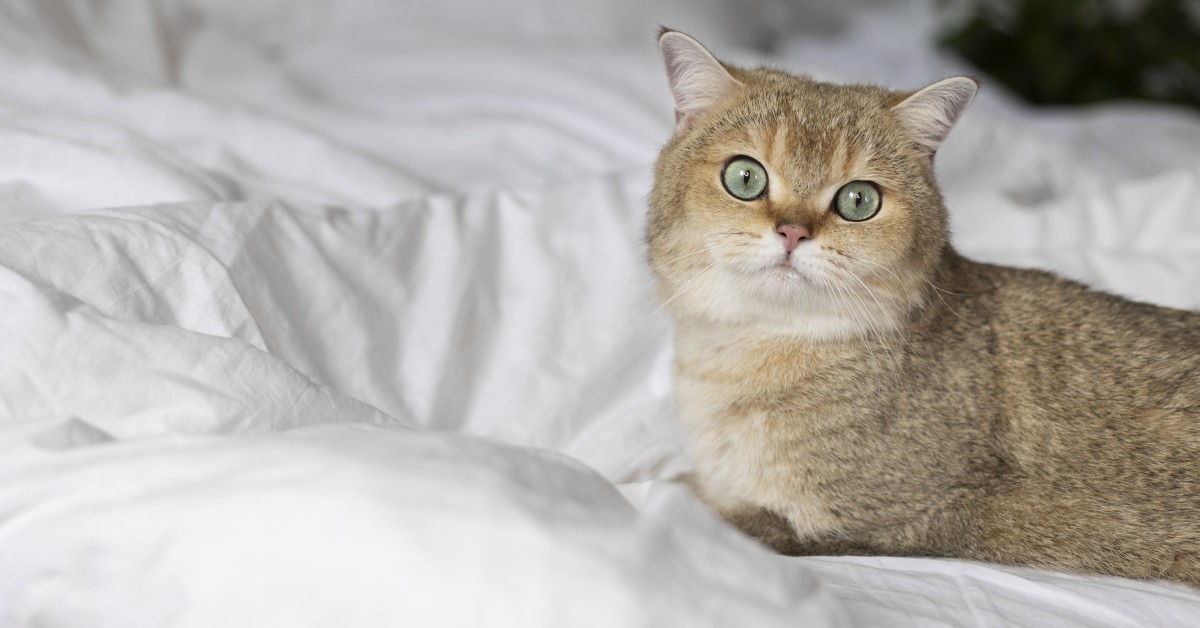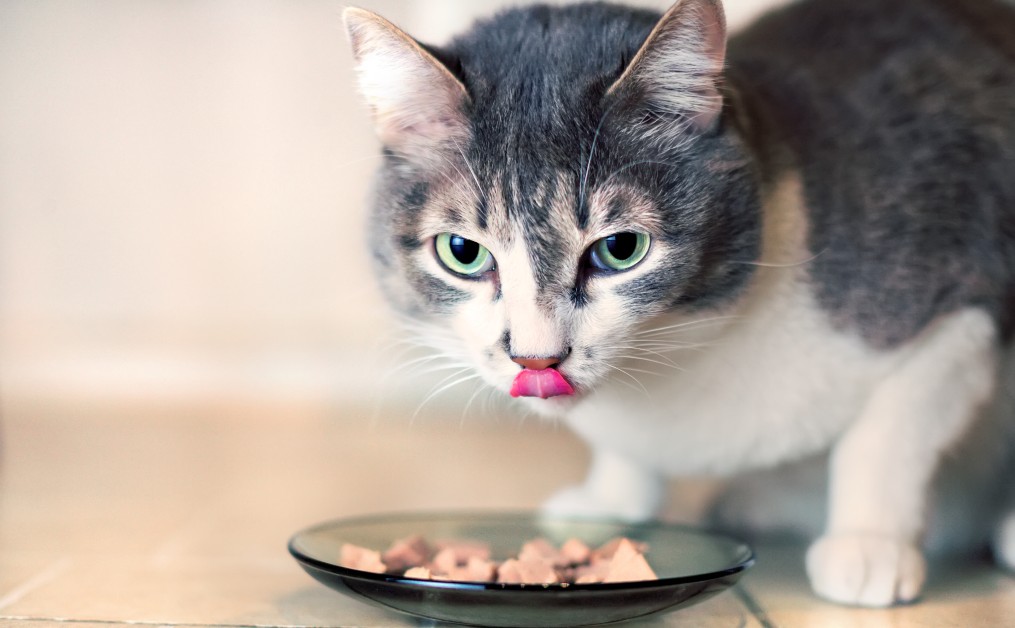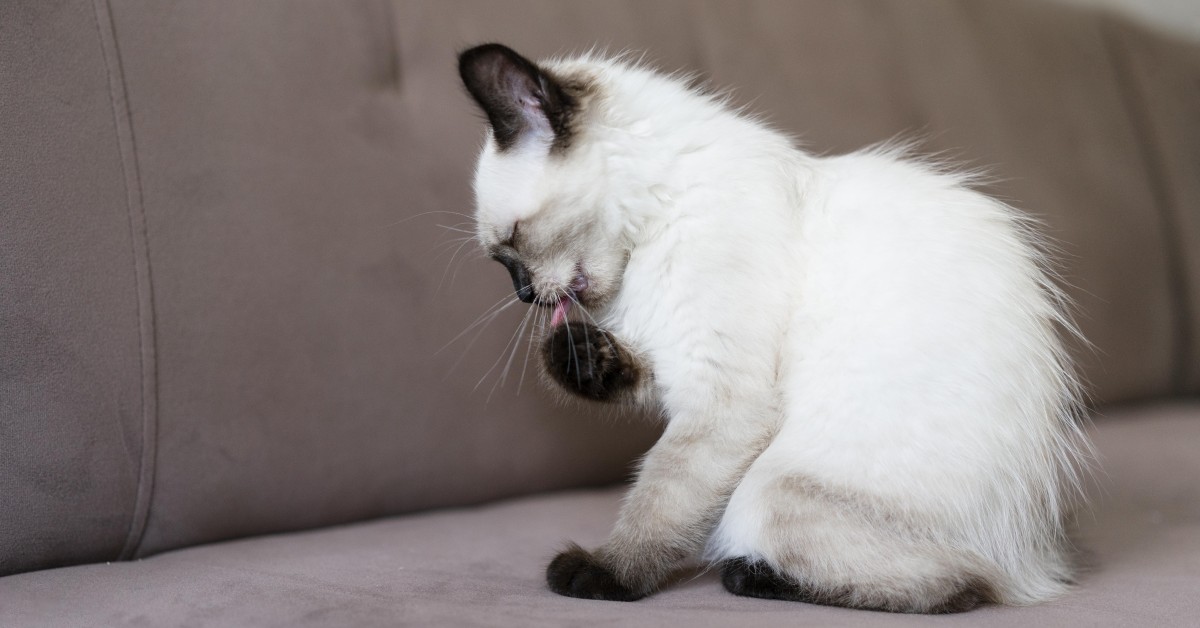Important Health Facts for Munchkin Cat Owners
Understanding your munchkin cat's health issues can help you safeguard its wellness.

Few animals in the pet world are cuter than the munchkin cat. With its stubby little legs and affectionate nature, this feline breed can grace your home as a bundle of fun. However, like other dwarf breeds, the munchkin cat can also experience health problems that owners should know about. Let's take a look at some important munchkin cat health facts, including measures you can take to keep your kitty as healthy as possible.
What Is a Munchkin Cat?
Munchkin cats are so named because of their unusually short legs and low-to-the-ground stature, the result of a genetic mutation that stunts bone and cartilage growth. In addition to short legs, this breed also sports adorable little folded ears due to the same mutation.
Munchkin cats are known for their loving, affectionate personalities, their tendency to follow their owners everywhere, and their enthusiasm for toys. They're also considered highly intelligent. Why, then, do organizations such as the Cat Fanciers' Association and International Cat Association refuse to formally recognize the breed? The answer lies in concerns over this cat's inherited abnormalities and the implications those abnormalities might have for its health and comfort.
Common Munchkin Cat Health Issues
The genetics that produce the cute, short-legged characteristics of the munchkin cat can also produce some serious health issues. In fact, the same mutated gene that promotes the dwarfism of the legs is lethal to the developing embryo if both feline parents happen to pass it on. Fortunately, many munchkin cats enjoy a perfectly healthy life in most respects and can live just as long as non-munchkin cats. Yet the breed can still fall prey to congenital or acquired health issues. Here are some of the more common challenges:
- Pectus Excavatum - If your munchkin cat has pectus excavatum, its breastbone and ribs are malformed in a way that makes its chest appear hollowed out. This malformation can become a serious issue if it puts pressure on the heart. Cases that affect heart function may require surgical correction. Look for symptoms such as difficult breathing, exercise intolerance, vomiting, coughing, and poor appetite.
- Osteoarthritis - In both cats and humans, osteoarthritis occurs when the cartilage in joints breaks down, causing the joints to become stiff and painful. Because munchkin cats have an unusual skeletal structure and weight distribution, their leg joints are especially vulnerable to this condition. If your cat avoids jumping or other favorite activities, displays signs of lameness, or starts walking with a different gait, suspect osteoarthritis.
- Lordosis - Lordosis refers to a spine that curves inward to an unnatural degree, producing a characteristic "swayback" appearance. Lordosis doesn't always cause trouble, but some munchkin cats may develop chronic pain and vertebral problems. If your cat appears to lean toward one side, shows obvious pain, or develops mobility issues, consult your veterinarian.
- Urinary disorders - Munchkin cats may suffer from various urinary system blockages, inflammations, and other painful problems. Veterinarians group this set of issues under the general category of feline lower urinary tract disease, or FLUTD.
- Hyperthyroidism - Some munchkin cats can also develop hyperthyroidism, a condition in which the thyroid gland produces too much of their hormones to regulate metabolism normally. A cat with hyperthyroidism may lose weight (despite being extra-hungry), show extreme thirst, urinate frequently, have a messy-looking coat, and act strangely cranky or aggressive.
How to Optimize Your Munchkin Cat's Health
The easiest yet most important step you can take for munchkin cat health involves weight control. When you have a breed of cat predisposed to osteoarthritis, you want to prevent those delicate joints from experiencing undue weight-related stress. Munchkin cats can generally eat the same healthy mix of dry kibble and wet food as other breeds -- it's just a matter of feeding the right amounts and then letting your little friend burn off excess calories through daily activity.
Cats with joint trouble may benefit from certain natural supplements. Examples include green-lipped mussels, omega-3 fatty acids, and a sulfur-based compound known as methylsulfonylmethane or MSM. These supplements may ease pain and inflammation. Two other supplements, glucosamine and chondroitin, can help your cat's joints by protecting the cartilage that lines the bone ends and assisting in cartilage repair.
Work Closely With Your Veterinarian
Every breed of cat, including the munchkin cat, can benefit from proper veterinary care. Have your cat weighed regularly as part of a routine wellness exam. Your veterinarian can advise you on your cat's ideal weight and food intake, prescribing weight loss measures as needed to keep your pet in optimal health.
If your cat shows symptoms of orthopedic problems, a skilled veterinarian can evaluate the affected joints, make a diagnosis, and recommend treatment options. In addition to (or instead of) the supplements listed above, the vet may prescribe analgesic and anti-inflammatory medication. If your cat has hyperthyroidism, treatment options may include radioiodine therapy, surgery to remove the thyroid gland, or a medication called methimazole. FLUTD treatment can range from dietary changes and antibiotics to removal of bladder stones.
Once you've fallen in love with your munchkin cat, you'll want to do whatever is necessary to keep it healthy and happy for life. You and your vet can work together to make it happen!
Ready to start saving money on pet wellness care?
Then take a look at Mint Wellness, the pet wellness plan that provides fast reimbursement on routine pet care. Save on vaccinations, wellness exams, preventatives, dental, and more!
Learn More


